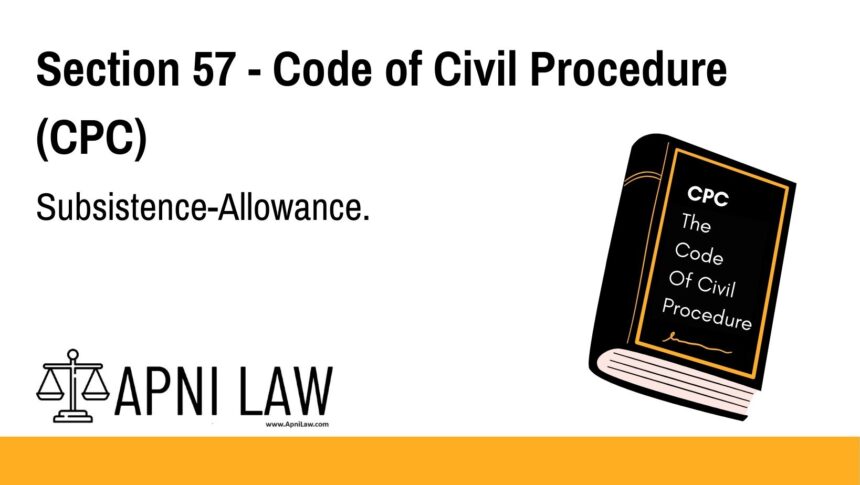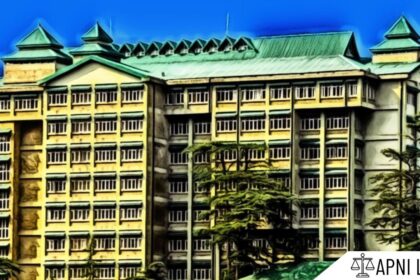Code
CPC The State Government may fix scales, graduated according to rank, race
and nationality, of monthly allowances payable for the subsistence of judgment-debtors.
Got it — this is Section 57 CPC. I’ll now draft it in the same SEO-optimized structure.
Section 57 CPC: Subsistence Allowance for Judgment-Debtors
Code: Section 57 of the Civil Procedure Code
57. Subsistence allowance.
The State Government may fix scales, graduated according to rank, race and nationality, of monthly allowances payable for the subsistence of judgment-debtors.
Explanation of Section 57 CPC
Section 57 CPC deals with the subsistence allowance that must be provided to judgment-debtors who are detained in civil prison. The purpose is to ensure that basic human dignity and survival needs of the debtor are not ignored while enforcing execution through imprisonment.
Key points:
- The State Government has the power to fix allowance scales.
- The allowance may vary depending on:
- Rank (social/official position of the debtor),
- Race and nationality (historical terminology — modern interpretation emphasizes non-discriminatory but practical categorization, e.g., cost of living differences).
- The allowance is meant to cover food, clothing, and other basic necessities of the judgment-debtor during detention.
- Payment of this allowance is the responsibility of the decree-holder before the detention order is executed.
Thus, this section balances creditors’ rights with debtors’ humane treatment.
Illustration
- Example 1:
A businessman is detained in civil prison for non-payment of a decree. The State Government’s scale requires ₹3,000 per month as subsistence allowance for someone of his status. The decree-holder must deposit this amount to maintain his detention. - Example 2:
If the decree-holder does not deposit the allowance as fixed by the State Government, the judgment-debtor cannot be detained, since subsistence during imprisonment must always be secured.
Common Questions and Answers
1. Who fixes the subsistence allowance for judgment-debtors?
The State Government prescribes the scales through notifications or rules.
2. Who pays the subsistence allowance?
The decree-holder must deposit the allowance before the debtor is committed to civil prison.
3. Why is rank, race, and nationality mentioned?
These were historical considerations to reflect different standards of living. In modern practice, scales are generally fixed based on minimum subsistence needs and cost of living, irrespective of such distinctions.
4. What happens if the decree-holder refuses to deposit the allowance?
The judgment-debtor cannot be detained unless subsistence allowance is provided as per Section 57 CPC.
5. Does subsistence allowance affect the decree amount?
Yes. The decree-holder may later recover the amount deposited for subsistence allowance as part of execution costs.
Conclusion
Section 57 CPC ensures that even when a judgment-debtor is detained in civil prison, his right to basic subsistence is protected. By placing the obligation on the decree-holder to deposit the allowance, the law prevents misuse of imprisonment as a tool of oppression while still allowing effective execution of decrees.
For more detailed legal explanations on execution of decrees under CPC, visit ApniLaw.








